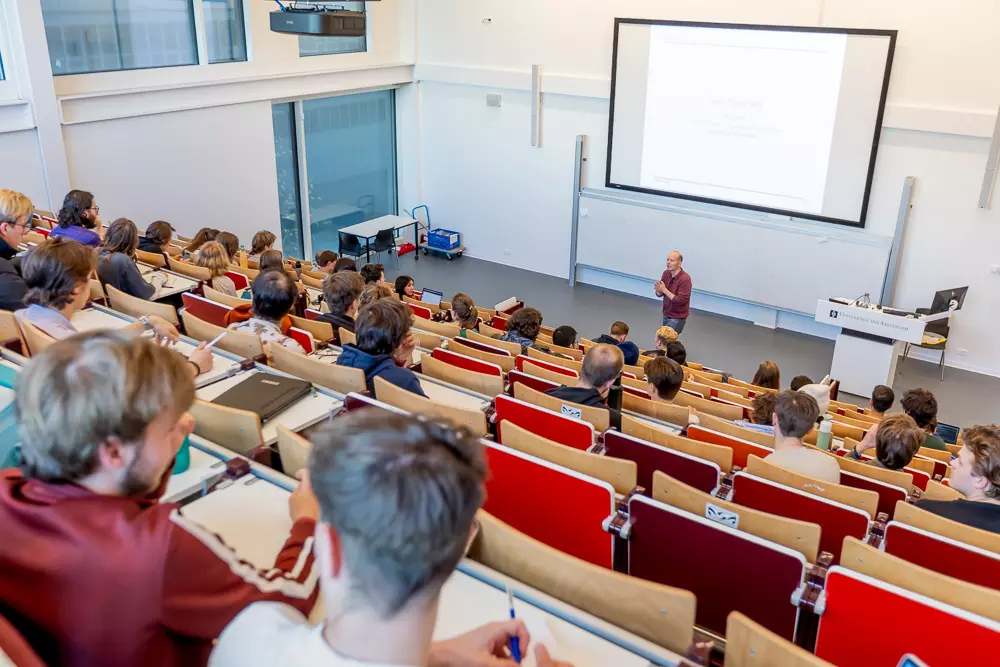Not found

More vacancies

Assistant Professor in Quantum Computing and Simulation for Quantum Chemistry and Materials
- Faculty of Science
- €4.537 - €6.209
- Closes on14-07-2025
- PhD
- 38 hours
Do you have the ambition to develop and apply quantum computing algorithms to overcome scaling limitations in chemically accurate electronic-structure computations (such as multiconfigurational post-Hartree-Fock methods)? And do you have the ambition to develop and apply techniques to tackle sizeable molecular systems using quantum computers available to us today and in the near future? Then we are looking for you.
View vacancy

Lecturer (D3) in Film, Television and/or Cross-Media Culture
- Faculty of Humanities
- €4.537 - €6.209
- Closes on08-06-2025
- PhD
- Minimum 30.4 hours
Are you a passionate teacher and artistic researcher with experience in the creative media fields? Then we have the perfect challenge for you!
View vacancy

Lecturer (D4) in Film, Television and/or Cross-Media Culture
- Faculty of Humanities
- €3.378 - €5.331
- Closes on08-06-2025
- Master's
- Minimum 30.4 hours
Would you like to help students develop their passion and capacities for analysing media, meaning and culture? Then we have the perfect challenge for you!
View vacancy
This website uses cookies
We, and third parties, use cookies on our website. We use cookies to ensure that our website functions properly, to store your preferences, to gain insight into visitor behavior, but also for marketing and social media purposes (showing personalized advertisements). By clicking 'Accept', you agree to the use of all cookies. In our Cookie Statement. you can read more about the cookies we use and save or change your preferences. By clicking 'Refuse' you only agree to the use of functional cookies.
